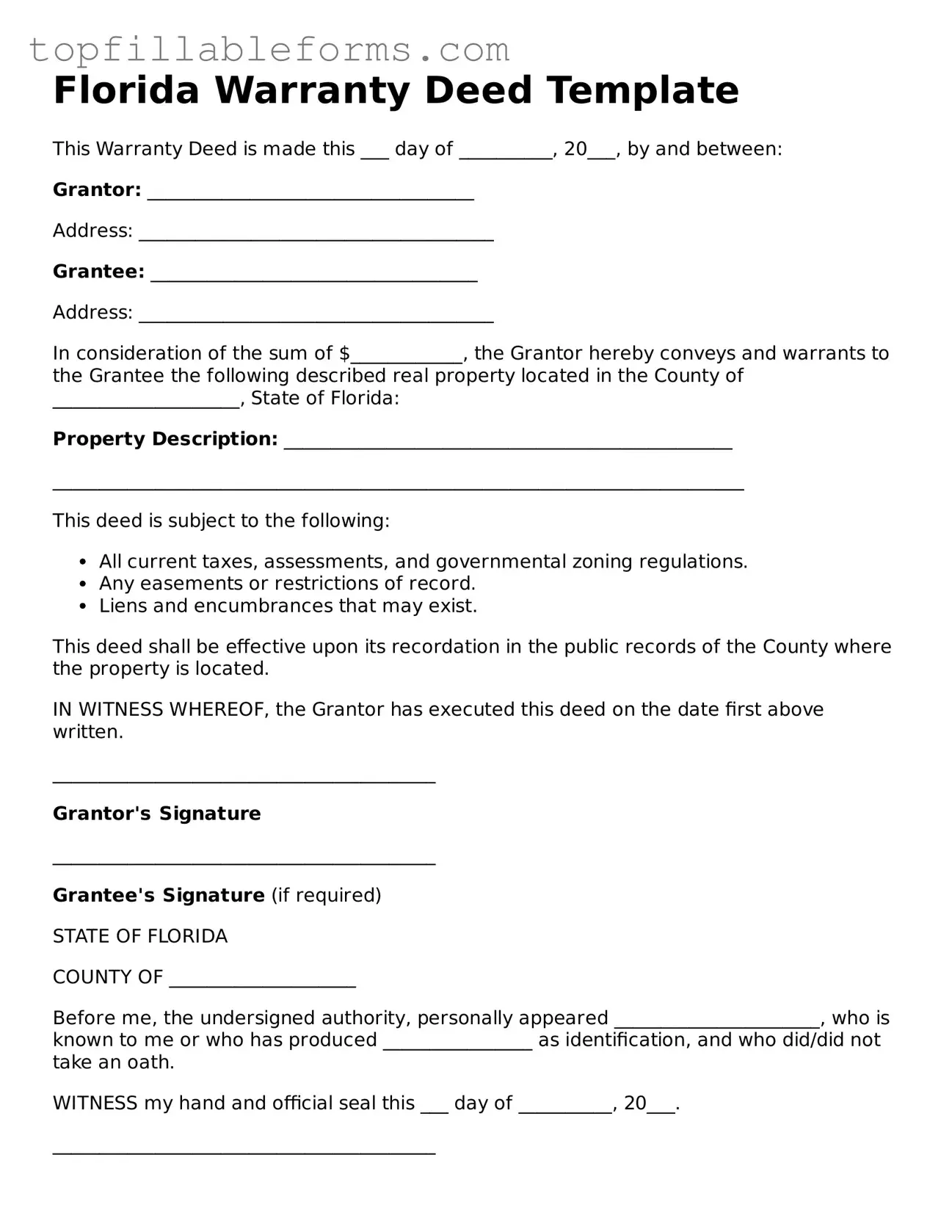Attorney-Verified Deed Template for Florida
The Florida Deed form is a legal document used to transfer ownership of real property from one party to another. This form serves as a crucial instrument in real estate transactions, ensuring that the rights of the buyer and seller are clearly defined. Understanding its components and implications can help individuals navigate property ownership with greater confidence.
Open Deed Editor Here

Attorney-Verified Deed Template for Florida
Open Deed Editor Here
Finish the form now and be done
Finish your Deed online by editing, saving, and downloading fast.
Open Deed Editor Here
or
▼ PDF File
